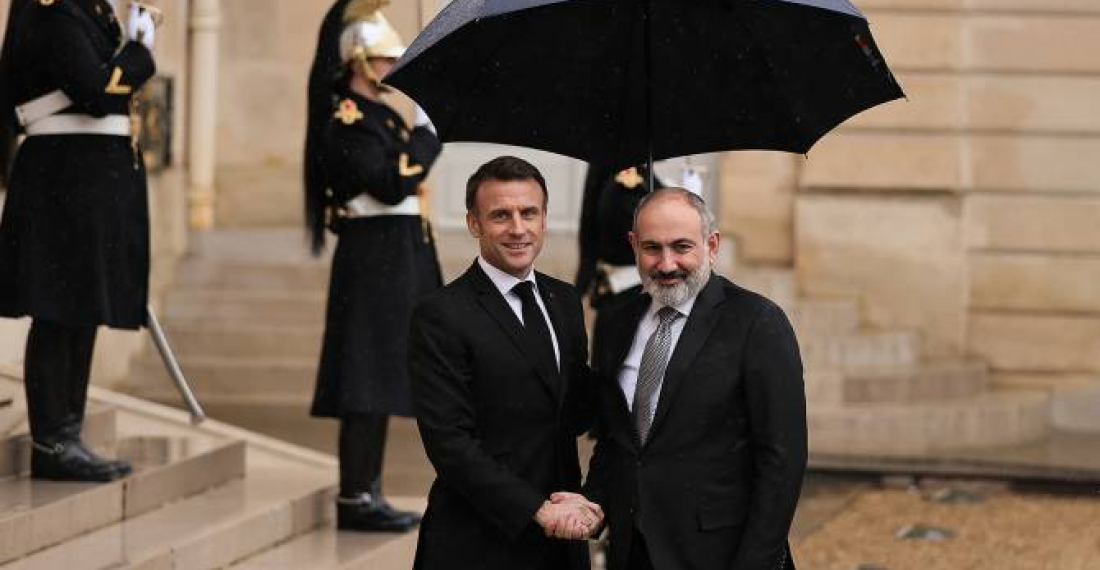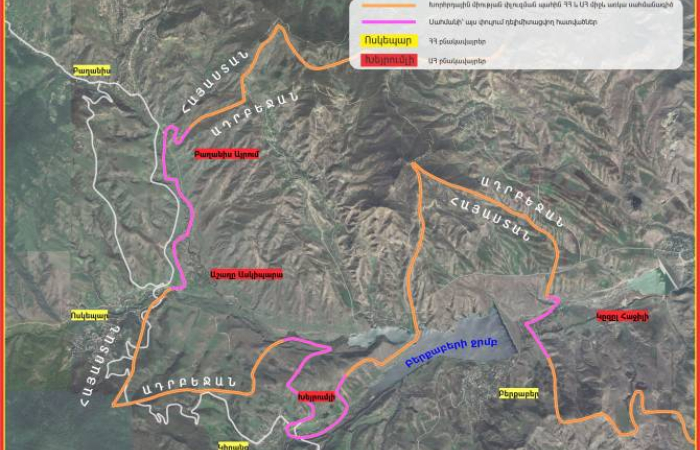Armenian Prime Minister Nikol Pashinyan visited France on 21-22 February at the invitation of President Emmanuel Macron. The official reason for the visit was for Pashinyan to attend the ceremony of the re-burial of a WWII French partisan of Armenian descent Misak Manushyan and his wife, Meline Manushyan, in the pantheon of the greatest figures of France. But the visit was also an opportunity for Macron to re-iterate France's unqualified support for Armenia, its sovereignty, territorial integrity and democracy, under the leadership of Pashinyan. In a joint press conference at the Elysee Palace, Macron hailed Pashinyan’s “courage”:
“I once again want to tell you, to repeat, that you can count on France's support for Armenia, its independence, territorial integrity, democratic process and aspirations for peace.
I would also like to salute, dear Nicole, your personal courage and determination to move forward on this path. Armenia's membership in the International Criminal Court is also a shining example of this commitment. At this moment, as we commemorate Misak and Meline Manushyan, war crimes continue on the continent of Europe, and the fight for freedom, more than ever, requires a fight against impunity.”
In his remarks, Macron also reaffirmed France's support for the Armenia-Azerbaijan peace process, but went out of his way to highlight the issue of the displacement of the Armenian population of Karabakh:
"We also call for the implementation of the decision of the International Court of Justice of November 17, 2023. According to this decision, Azerbaijan must ensure that persons who have left Nagorno-Karabakh since September 19, 2023, and who wish to return can do so safely, unhindered and quickly.
We want the South Caucasus to be a region of peace, integration and cooperation, and it is necessary for communication channels to be factors of integration and not division. I have visited Central Asia and I want communication links between Central Asia, the South Caucasus and the European Union to develop. And I welcome your "Crossroads of Peace" initiative in this common ambition."
The remarks of the French president were criticised in a commentary posted on the website of the Azerbaijani foreign ministry: "As a country, which has never mentioned the rights of Azerbaijanis violated for nearly 30 years, displaced from their territories, and subjected to mass massacres, French side’s statement about the rights and security of Armenians left the territories of Azerbaijan at their own will and without any violence, is completely inappropriate", it said.
In a separate development, it was reported on Thursday that a batch of French military equipment will arrive in Armenia today. The French newspaper Le Figaro said the consignment includes three Thalès Ground Master (GM 200) radars, which will enable the detection of enemy aircraft at a distance of 250 kilometers, as well as night vision devices and binoculars.
It is also noted that the agreement signed between the parties on cooperation in the field of defense provides that the French army will organize 3 mountain combat training courses for Armenians this year.
Armenia and France signed agreements on defense cooperation on October 23, 2023, during the visit of RA Defense Minister Suren Papikyan to France.
French Defense Minister Sebastien Lecorne announced in an interview to RTL radio station that he will soon visit Armenia. The French news agency AFP agency reported that the Minister of Defense of France will visit Armenia on February 22 on a two-day visit.






